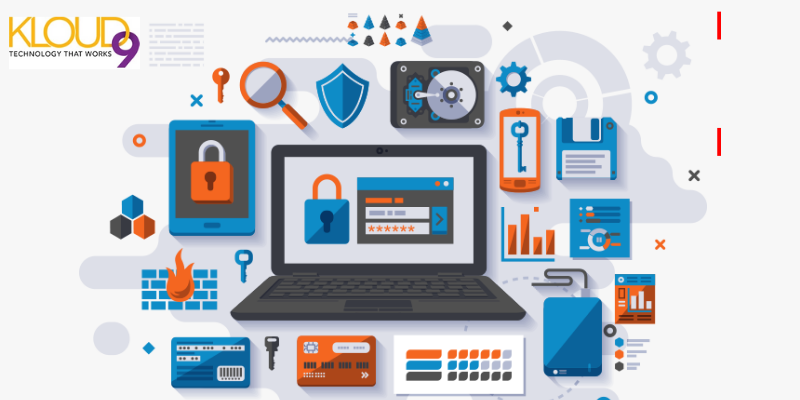Financial institutes and organizations have always been under threat — earlier, the threats were entirely physical, and with advancing technologies, the threats have also become more technologically sophisticated. Nowadays, financial organizations need to be protected from a wide range of cyber threats, attacks as well as computer frauds. Due to this reason, it has become extremely essential for financial organizations to have high-profile network security and keep the institutes and organizations safe from cyber attacks. It is necessary to protect data from breaches. So let’s get to know why network security is essential for all financial organizations across the globe.
#1 Network Security Helps In Protecting Confidential Data:
In today’s world, data is one of the important assets for each and every organization, especially the financial institutes. The data generally includes personal and confidential information of the customers as well as the business clients, data related to accounting, financial assets of the customers, proprietary rights, and much more. Network security will ensure that all the data backup is properly maintained through multi-factor authentication processes or making use of the sophisticated password policies.
#2 Network Security Will Protect The Customers From The Great Financial Loss:
When the security of the financial institutes or organizations gets compromised, it means that there might be a huge financial loss to the customers. This loss will have a negative impact on the reputation of the organization, as the customers will not have trust in the organization anymore. It would be a stressful time for the customers to recover from the stress of the losses they have faced. So in order to keep your customer’s data protected, every financial organization must implement a high level of network security.
#3 Network Security Can Prevent Penalties And Other Consequences:
When financial organizations are under cyber-attack or any kind of cyber threat, then they also have to be ready for the penalties that may have to pay if found that there was a lapse in their security sysytem. These penalties are enforced and collected for non-compliance and it can damage the monetary condition of the financial institutes. Moreover, it will increase the level of failure caused. Having compliance with cybersecurity will help the financial institutes to manage the cyber threat and effectively take measures to implement network security. With proper compliance, financial institutes can also meet security agreements and safeguard customer information.
#4 Network Security Focuses On Enhancing The Performance Of The Network:
Generally, all financial institutes have an inbuilt network system, but when you are protecting it, the performance level of the network increases. While implementing network security, you are placing endless tools and advanced equipment on an active level that keeps monitoring and regulating the security aspect of the financial organization or institutes. The protection of the network is secured with the help of a suite of intelligent and secure products. This security will help in increasing the efficacy and functionality. For instance, you can make use of advanced level threat protection such as DNS management products, multi-factor authentication, backup, and even a SOC/SIEM option.
#5 Network Security Will Help You To Protect The Financial Organization From Harmful Cyber Attack:
For every business, maintaining a high level of security is quite essential to avoid ransom attacks. This will help you in preventing data exfiltration. It will be a safe and actively monitored network.
Measure That Every Financial Institute Or Organization Must Take In Order To Improve The Network Security Are As Follows:
1. The smart devices that are being used by the employees and other staff must be entirely password protected. These passwords will protect the data from being breached.
2. Implementation of firewalls throughout the network controls. Firewalls are basically software programs that will regulate the incoming traffic and filter out everything that seems harmful for the organization or the financial institute.
3. Always make use of anti-spyware, anti-virus, or even anti-malware software for blocking out viruses that get into the incoming traffic in the form of disguise through mails or downloadable applications.
4. Making use of cloud-based storage. Through cloud storage, you are protecting the data that are vulnerable to attack when they are stored on physical devices. Moreover, you can access the data just with the help of the internet from anywhere and anytime.
Summary:
So now you know that network security is extremely important for every business and especially the financial institutes, you can start measuring the strength of the security. If you find any loopholes or problems in the network security, then strengthen it out by following the given points.





You must be logged in to post a comment.